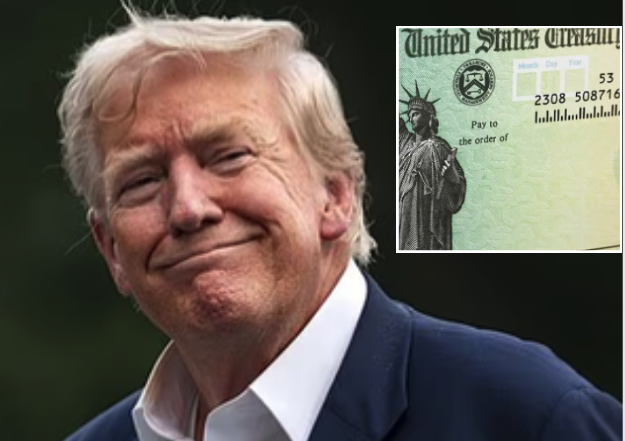Key Point Summary – $2,400 Tariff Refunds
- Republican Senator Josh Hawley introduces new rebate bill
- Families of four could receive up to $2,400 in tariff refunds
- Trump supports the plan and calls it a “little rebate”
- The U.S. has collected over $150 billion from tariffs this year
- Refunds would arrive as refundable tax credits
- High earners would see reduced rebate amounts
- Proposal needs Congressional approval to become law
Trump Wants Tariff Cash Back in Voters’ Hands
American families could soon receive up to $2,400 in tariff refunds, thanks to a new plan from Senator Josh Hawley and a nod of support from Donald Trump. The rebate plan aims to return a slice of the government’s tariff haul to everyday Americans.
This proposal follows the news that the U.S. Treasury has pulled in over $150 billion this year from tariffs. That’s no small sum, and it’s tempting lawmakers looking to score points with voters before the next election.
Hawley Channels Trump’s Economic Strategy
“We’re thinking about a little rebate,” Trump told reporters, hinting at something big. It was enough for Hawley to move quickly. On Monday, he introduced the American Worker Rebate Act.
The idea is simple. Just like the stimulus checks during the pandemic, families would get direct payments. A typical household of four could expect a $2,400 check—$600 per adult, $600 per child.
Not Everyone Will Get the Full Amount
The rebate isn’t universal. There are limits based on income. Joint filers earning over $150,000, heads of household above $112,500, and individuals making more than $75,000 would see their rebate reduced by 5 percent.
In other words, middle and working-class families get the most. High-income earners get less or nothing. Hawley says that’s the point.
A Refund Funded by Foreign Imports?
Tariffs are taxes on imported goods, often from China or the European Union. The twist? It’s U.S. companies that pay these taxes when they bring in foreign products. For now, many firms are swallowing the costs. But if they pass them along, consumers could face higher prices.
Still, the tariff system has flooded the Treasury with cash. In July alone, the government took in $28 billion from tariffs. That’s more than any month before and adds to an already massive pot.
Trump Keeps Pressure on Global Rivals
As families hope for refunds, Trump keeps escalating his trade war. He’s holding firm to a looming August 1 deadline. That’s when a fresh round of reciprocal tariffs kicks in for dozens of countries.
In a social media post, Trump warned, “The August first deadline is the August first deadline. It stands strong and will not be extended.”
India is in the crosshairs, facing a 25 percent tariff on goods, plus extra penalties for its deals with Russia. Other countries are bracing for impact.
EU Signs Deal to Avoid Higher Tariffs
In a dramatic move, Trump struck a weekend deal with the European Union. Instead of facing a 30 percent penalty, the EU agreed to a flat 15 percent tariff. Trump called it “the biggest deal ever made.”
That agreement spared Europe’s biggest economies from a financial hit. But it also confirmed Trump’s approach: apply maximum pressure, then offer a deal. And if you blink, you pay.
Public Response: Is It a Bribe or Relief?
Reactions to the proposed $2,400 tariff refunds are split. Supporters say it’s fair. “We’ve paid for these tariffs at the register. Why shouldn’t we get something back?” said one Iowa father.
But others are skeptical. Critics say the government is taxing imports, then rebating the money to score political points. “It’s smoke and mirrors,” said a Democratic staffer. “You’re getting back your own money.”
Economic Experts Warn of Mixed Signals
Economists are divided. Some believe rebates could help struggling households cope with inflation. Others fear the checks would just add more heat to an already burning economy.
If prices rise due to tariffs, the rebate might soften the blow. But if companies keep absorbing the cost, it could be a short-term gain with long-term consequences.
Will It Actually Happen?
That’s the billion-dollar question. Hawley’s proposal is just that—a proposal. It still needs to pass both the Senate and the House. With a divided Congress and a looming election cycle, nothing is guaranteed.
Still, Trump’s vocal support gives it momentum. And if tariff collections keep rising, the pressure to do something with the money will only grow.
For now, families can only wait. A check could be coming. Or the idea might fade into campaign promises. But with $150 billion collected and more coming, the cash is there.
Will Washington send it home? Or will it stay in the Treasury vaults?




